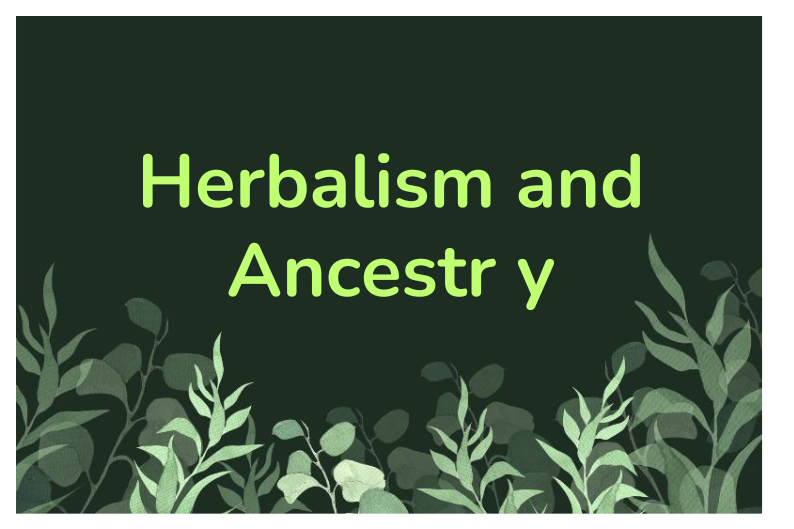
Honoring Ancestral Wisdom: Global Herbalism and Wellness
Global Herbalism, Cultural Herbs, Traditional Wellness: Honoring Ancestral Wisdom Across Continents
Herbalism is a living tradition that brings together people and cultures through the shared use of plants for health and wellness. Across the globe, every culture has their own herbal practices that help connect families, support communities, and tie generations to their roots. These ancient herbal traditions are still important today, offering natural options to help with balance, relaxation, and daily vitality.
People are starting to look back to these old ways, inspired by natural health leaders such as Gary Brecka and Barbara O’Neil. Interest in herbs is not just about history—it is about finding gentle ways to live better today. MC Herbs is proud to be a part of this movement, offering natural supplements that honor global herbal wisdom while fitting into modern wellness routines.
Key Takeaways
- Herbalism brings together global cultural practices for natural wellness.
- Cultural herbal traditions inspire modern supplement choices from MC Herbs.
- Exploring herbs connects wellness seekers to their heritage and nature.
Global Herbalism: Foundations and Key Cultural Practices
Herbal traditions carry the wisdom of countless generations, shaping how people use plants for healing and balance. Many systems, like Traditional Chinese Medicine, Ayurveda, African herbal knowledge, and local indigenous practices, focus on mind, body, and spirit as a whole.
Traditional Chinese Medicine: Herbs and Healing Philosophy
Traditional Chinese Medicine (TCM) is one of the oldest living herbal traditions, with roots going back over 2,000 years. It centers around the idea of Qi (also called chi), which is the life force that moves through every part of the body. Harmony within the body means harmony in life.
TCM’s herbal remedies often blend medicinal plants to create formulas tailored for energy, digestion, or immunity. Some important ingredients include ginseng (for energy and vitality), goji berries (for longevity), and ginger (good for the stomach). These herbs are sometimes mixed as teas, powders, or tonic soups.
Many practitioners emphasize balance and natural cycles, echoing wellness ideas suggested by experts like Barbara O’Neil. For those interested in supporting Qi balance, companies such as MC Herbs offer herbal blends inspired by these traditional approaches.
Common TCM Herbs Table:
| Herb Name | Purpose |
|---|---|
| Ginseng | Energy, stress, clarity |
| Goji Berries | Longevity, eyesight, liver |
| Ginger | Digestion, warming, nausea |
Ayurveda: India’s Herbal Wisdom
Ayurveda, which means “the science of life,” originated in India and centers on balancing three energies known as Vata, Pitta, and Kapha. The system views health as a balance between mind, body, and nature, with herbal remedies playing a key role.
Some of the best-known Ayurvedic herbs are turmeric (which supports healthy inflammation), ashwagandha (which supports calm and resilience), and neem (valued for cleansing and skin health). Many families in India still use these remedies, often as teas or pastes.
Ayurveda focuses on eating and living in harmony with the seasons and personal constitution, an idea closely aligned with Gary Brecka’s belief in natural rhythms. MC Herbs supports this wisdom by offering pure turmeric capsules and ashwagandha root powder for daily balance.
Popular Ayurvedic Herbs:
- Turmeric
- Ashwagandha
- Neem
African Herbal Traditions: Ancestral Healing
African traditional medicine draws from deep cultural heritage and ancestral knowledge. Healers, sometimes called sangomas, use local plants for both healing herbs and spiritual guidance. Nature’s pharmacy includes moringa (rich in nutrients), echinacea (for immune health), and regional barks, seeds, and roots.
Herbal remedies are shaped by community needs. Roots might be ground into powders, soaked as tonics, or mixed into food. Ritual and ceremony are often tied to their use, showing respect for both ancestors and the land.
MC Herbs has learned from these traditions by offering moringa supplements and echinacea extracts inspired by African plant wisdom. This honors both the plants and the communities who keep this knowledge alive.
| Plant | Traditional Use |
|---|---|
| Moringa | Energy, nutrition |
| Echinacea | Immune defense |
Indigenous and Regional Herbal Systems
Many indigenous groups in the Americas, Australia, and Asia treasure their traditional knowledge of local medicinal plants. Each community’s herbal system is built from plants found nearby, such as ayahuasca (from the Amazon), or sage, cedar, and sweetgrass in North America.
These herbs might be used as teas, smudge sticks, or ointments, and their uses often blend healing with ceremony. Connection to land and ancestors is key. Ethnobotanists and healers work together to safeguard planets’ wisdom for future generations.
MC Herbs partners with indigenous communities when developing some wild-crafted herbal blends, helping to share these traditional remedies with the world while respecting regional practices and knowledge.
Notable Plants:
- Ayahuasca (spiritual ceremonies)
- Sage (cleansing and ritual)
- Echinacea (immune support)
Herbalism for Modern Wellness: Integration, Benefits, and Future Directions
Modern wellness is experiencing a revival of herbalism, blending timeless knowledge with fresh insights. This approach values the holistic care of body and mind, recognizes the unique properties of cultural herbs, and focuses on both tradition and modern application.
Holistic Health and Wellness Approaches
Holistic health places importance on the whole person, looking at physical, mental, and emotional well-being all together. Many cultures have relied on traditional wisdom to address more than just symptoms, supporting balance in daily life. Today, this includes supporting mental clarity, reducing stress, and enhancing overall relaxation with natural remedies.
Prominent wellness voices like Gary Brecka and Barbara O’Neil encourage using a preventive approach to health, which honors the body’s natural healing abilities. They focus on clean living, mindful habits, and herbal support. Companies such as MC Herbs design supplements that fit these principles, offering blends to promote holistic wellness as part of daily routines.
Key Healing Herbs: Global Uses and Scientific Perspectives
Across the world, certain herbs have been valued for centuries. For example, ashwagandha from India is believed to support stress relief, while reishi mushroom in Asia may help the body adapt to fatigue and provide antioxidant benefits. In the West, echinacea is often used for its potential to boost immune strength.
Scientific studies increasingly confirm the anti-inflammatory and antioxidant properties of these herbs. The integration of ancient herbs into modern practice is a result of both traditional wisdom and emerging research, as explained in discussions of herbal medicine shaping modern health. Brands like MC Herbs use this research to guide product formulation, aiming for blends that encourage mental clarity and overall wellness.
Cross-Cultural Exchange and Contemporary Innovations
Today’s wellness world draws on global herbal wisdom, creating a richer community of shared learning. The cross-cultural exchange of herbal knowledge has brought together traditions from Asia, Africa, Europe, and the Americas. This exchange leads to innovations like adaptogenic blends and holistic routines that support different wellness needs.
Modern supplement companies, including MC Herbs, embrace this integrative trend by combining cultural insights with up-to-date science. This supports new ways to approach health and wellness and fosters a sense of respect for the natural world. To learn more about global herbal trends and their role in health, see this article on the evolution of herbal medicine.
Frequently Asked Questions
Herbalism has deep roots in many world cultures and offers unique ways to support everyday wellness. Ancient traditions, diverse healing systems, and the modern resurgence of natural remedies all shape how people view and use herbs today.
What are the primary benefits of incorporating herbal remedies in modern healthcare?
Herbal remedies focus on supporting the body’s natural balance. Many believe they help reduce stress, improve digestion, and boost the immune system. Using botanicals, like those offered by MC Herbs, may also help fill nutritional gaps with fewer additives compared to synthetic products.
Holistic health advocates, such as Gary Brecka and Barbara O’Neil, often stress the importance of natural ingredients for overall vitality. Herbal preparations can be used alongside healthy lifestyle practices to support daily wellness.
Can you provide an overview of herbs commonly used in traditional healing practices across various cultures?
Herbs such as ginger, turmeric, garlic, and ginseng have been used for centuries in Asia. In Africa, moringa and rooibos are highly valued, while in Europe, chamomile and nettle are frequently used. North American native groups have long used echinacea and sage.
These plants hold cultural significance and are still popular for their reported soothing and energizing effects. Companies like MC Herbs often honor these time-tested plants by including them in natural supplement blends. Learn more about how cultures worldwide use herbs on Healthy Herbal.
How do traditional wellness practices differ from mainstream medical treatments?
Traditional practices focus on natural balance and prevention, often using plants, foods, and mindful living. Healing rituals, herbal teas, and diet changes are common methods. Mainstream medicine, on the other hand, tends to use pharmaceuticals and technology to manage symptoms.
Practitioners such as Barbara O’Neil encourage natural approaches for everyday ailments. Herbal supplements from MC Herbs are crafted to support these gentle long-standing methods.
What are some examples of traditional medicine systems and their key principles?
Traditional Chinese Medicine uses herbs, acupuncture, and movement exercises to balance energy, or "Qi." Ayurveda in India highlights the use of spices, plant remedies, and personalized routines depending on mind-body types. Indigenous groups worldwide embrace storytelling, ceremony, and nature-based healing.
Each of these systems sees health as a balance, not just absence of disease. You can learn how these global systems guide the use of natural herbs in traditional medicine.
Could you explain the role of ethnomedicine in the preservation of cultural heritage?
Ethnomedicine preserves ancestral wisdom about plants, rituals, and wellness passed down through generations. It protects knowledge of local flora, and it gives communities a way to stay connected to their roots.
MC Herbs values these traditions and sources ingredients from cultures that have preserved herbal wisdom. Ethnomedicine helps keep healing stories alive and gives future generations access to these valuable practices. For more on the cultural role of traditional herbs, explore further.
What are the challenges and considerations in researching the efficacy of herbal medicine?
Studying herbal remedies can be difficult because every plant, preparation, and heritage is unique. Scientific research may not always capture the full picture of how herbs work in daily life or in traditional contexts. There can also be concerns about quality, purity, and proper sourcing.
MC Herbs works to ensure purity and consistency by honoring traditional methods and integrating careful quality checks. Exploring the global perspective on natural herbs in traditional medicine reveals both the promise and the complexity of herbal research.
